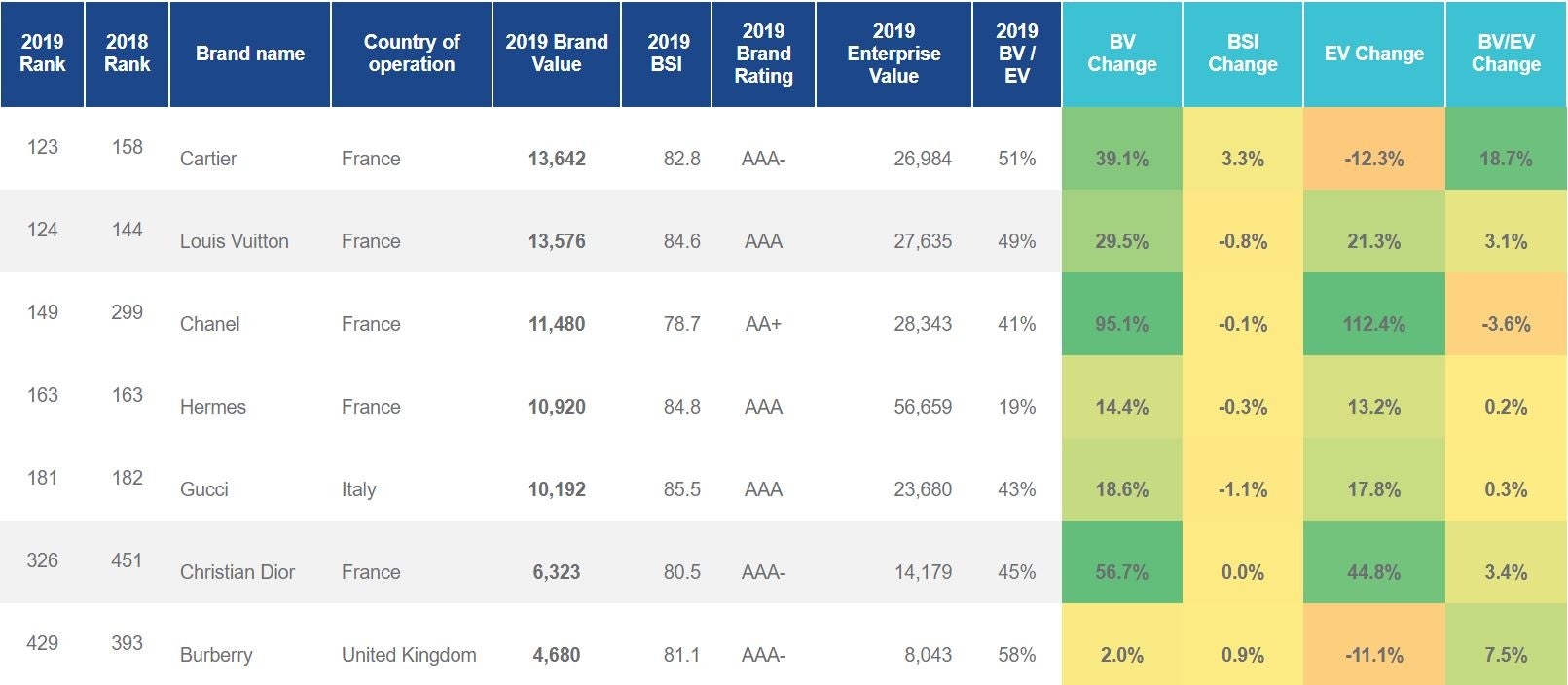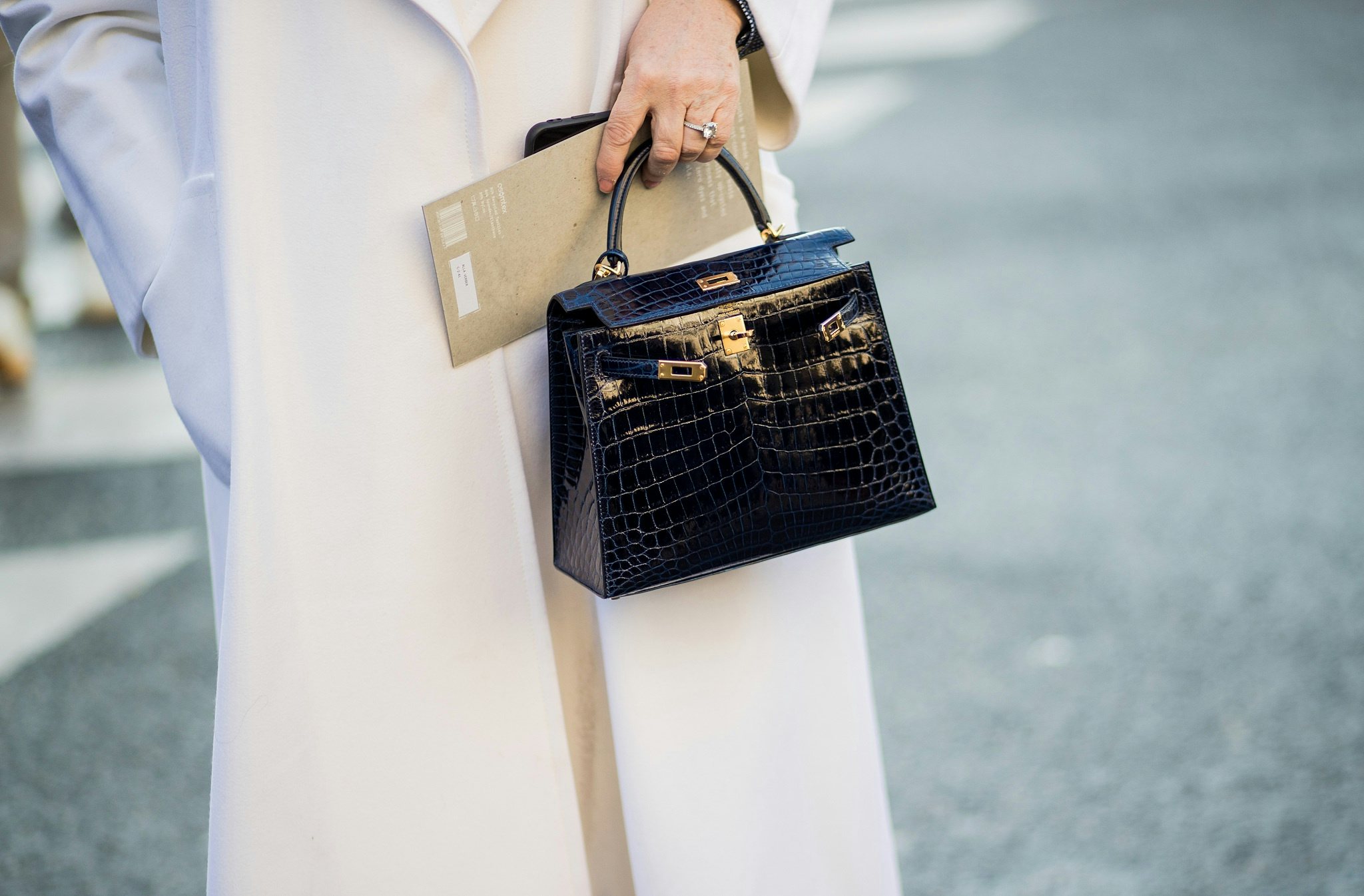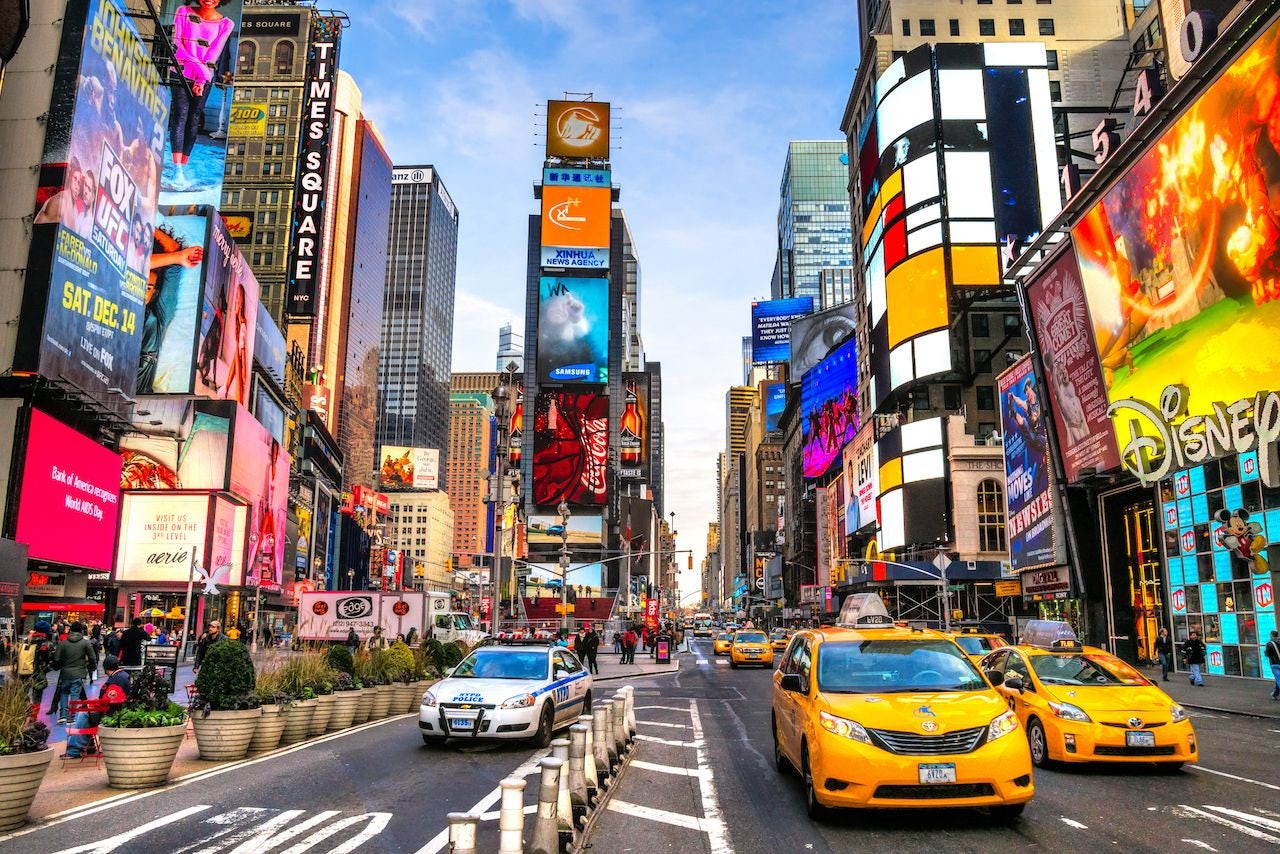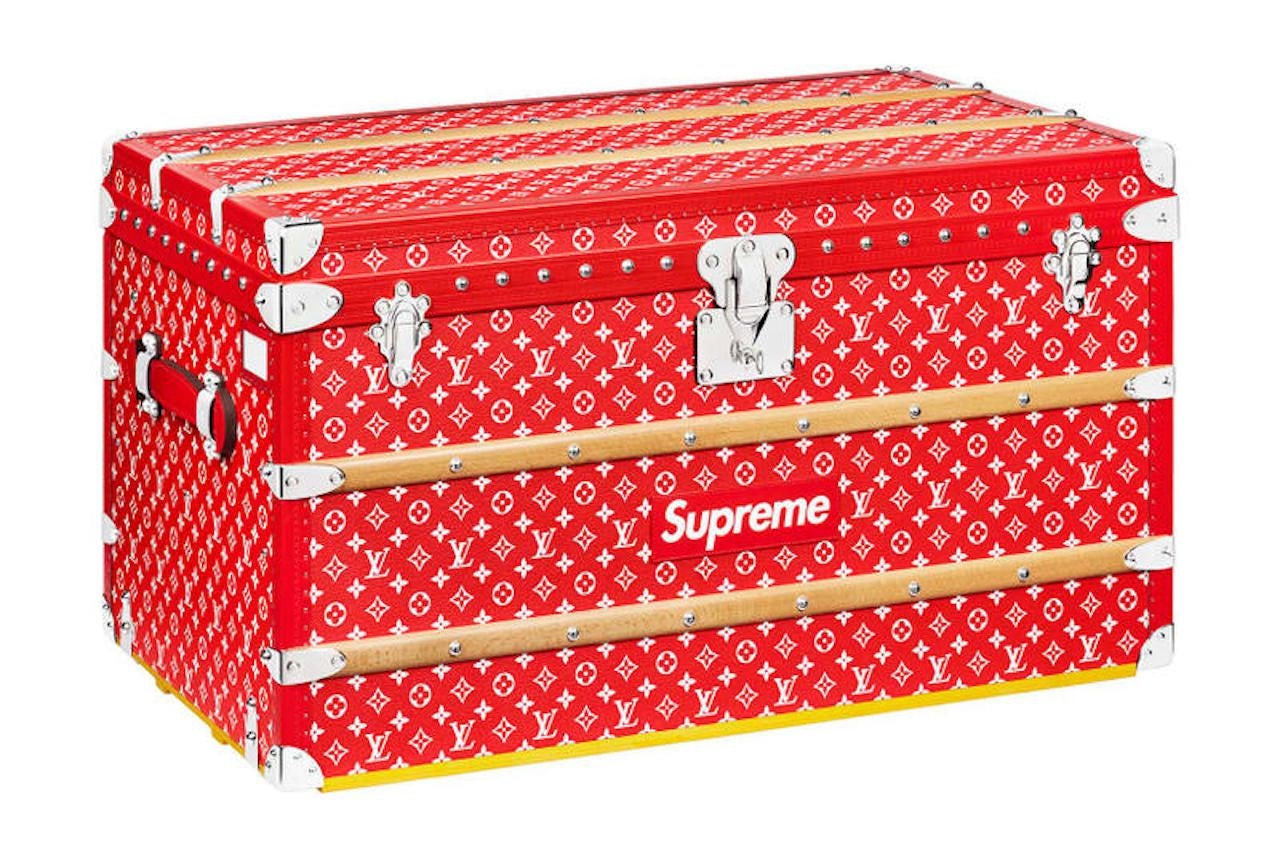Despite signs of an economic slowdown, 2018 proved to be a cheerful year for a majority of high-end fashion brands as Chinese spending power upped the value and visibility of some famous luxury names.
According to an annual ranking of the world’s 500 most valuable brands released by Brand Finance, a slew of luxury brands including Chanel, Christian Dior, Cartier, and Louis Vuitton saw their brand values increase significantly from 2018 to 2019, largely due to buying in the Chinese market.
To define “brand value,” the London-based data intelligence company applied a common industry-accounting approach. It estimates the likely future revenues that are attributable to a brand by calculating the royalty rate that would be charged for its use.

French luxury powerhouse Chanel was the fastest-growing name in terms of brand value. Over the past year, its value jumped 95.1 percent, sending the brand to no. 149 in the ranking from no. 299 in 2018.
Another French luxury giant, Christian Dior, also experienced a jump. This year, it was ranked no. 326, up from no. 451 the year before. Other renowned brands like Louis Vuitton (from 144 to 124), Cartier (from 158 to 123), Prada (from 478 to 451), and Rolex (from 276 to 245) all experienced varying degrees of growth in the year. The rankings of Gucci (182) and Hermès (163) remained the same this year. British label Burberry, however, saw its value ranking decline to no. 429 from no. 393.
"The luxury brands in the list have seen an overall growth in their brand values, largely due to the expenditure in the Chinese market," said Vinchy Chan, a consultant at Brand Finance.
"Most of these luxury brands have invested great efforts into developing digital channels to stay relevant and offer more tailored services to their discerning customer base, including ultra-luxury brands like Hermès," she added.
Common traits shared among these valuable luxury brands are that they have at least one signature design that conveys the personality and unique feel of the brand to resonate with their shoppers, Chan explained.
Amazon, the global e-commerce behemoth, came on the top of the ranking this year as usual. WeChat, the digital marketing king among luxury brands operating in China, experienced a surge in its brand value during the period. As the third fastest-growing brand overall, WeChat's brand value grew by 126.2 percent, boosting it to the 20th position from 47th in 2018. The power run helped WeChat beat its parent company Tencent Holdings, whose ranking actually dipped one spot from last year to no. 21.
China’s answer to Netflix, iQiyi, became the year's dark horse. The video streaming service was the year's fastest-growing brand, with its brand value skyrocketing over 300 percent, underlying China's booming video streaming market. Though luxury brands haven’t yet formed much of a direct relationship with iQiyi, hundreds of thousands of streaming content to more than 500 million monthly active users on the platform provides ample marketing and advertising opportunities.
JD.com, China’s second-largest e-commerce platform, experienced a fall in the rankings to no. 151 from no. 63 in 2018, after its founder Richard Liu was accused of sexual assault in the United States. Its major competitor Alibaba climbed to no. 116 from no. 162 during the period. Both companies are significant for luxury brands doing business in China, as they are in a heated competition to recruit brands to sell on their platforms.
Brand Finance’s report also provided a 2019 “Brand Guardianship Index,” which rates CEOs to "capture how well they measure up as brand managers." Unsurprisingly, LVMH’s head Bernard Arnault continues to score high marks thanks to the group’s robust development in 2018. He was in third place following Amazon's Jeff Bezos and Toyota's Akio Toyoda, respectively. Apple CEO Tim Cook was fourth on the list.
Overall, the ranking, which is forward-looking, provides some valuable insights into the potential of different companies and brands. It is not an exaggeration to state that the luxury industry is a winning category from 2018 to 2019, according to the report. But whether the momentum can hold up depends on each brand’s ability to navigate the complicated global economic environment and whether the Chinese economy is really headed into a significant slowdown.


